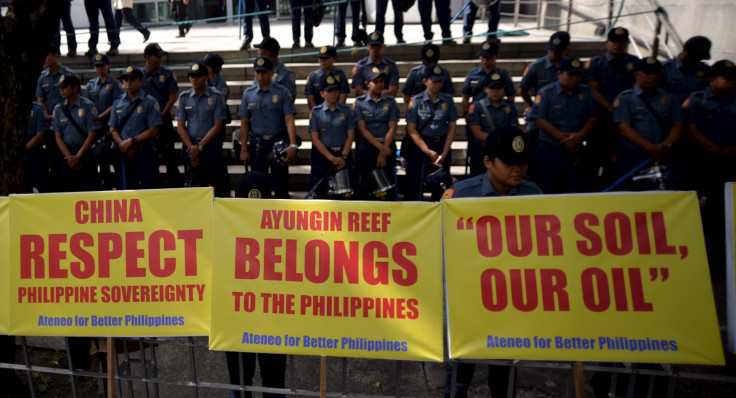The South China Sea belongs to us since it has 'China' in its name, says Chinese admiral

What's in a name? Seems like it's an entire sea for China. In a conference held in London on Sept. 14, Chinese Vice Admiral Yuan Yubai said that “the South China Sea, as the name indicates, is a sea area that belongs to China.”
According to the DefenseNews, Yubai further said that the sea belonged to China since the time of the Han dynasty, which ruled from 206 B.C. to A.D. 220. He further says that the Chinese people have been been working and producing from the sea since the ancient times.
During the conference, the commander of the Chinese navy’s North Sea claimed all of the sea's rocks, reefs shoals and islets as China's property. However, five other countries -- including Malaysia, Vietnam, Taiwan, the Philippines and Brunei – lay claim to the parts of the resource-rich water that China says is theirs.
Since the last 18 months, China has been making efforts to expand the disputed territory by reclaiming the land around the tiny islets. Although a number of other countries have also made efforts toward island-building, China seems to top the chart and outstrip the others. Due to the same reason, tension has gradually cropped up between different claimant countries.
Earlier in 2015, U.S. Pacific Command commander Admiral Harry Harris called China’s island expansion “changing facts on the ground by essentially creating false sovereignty,” reported The Time. Meanwhile, Yubai’s statement has sparked a debate over the social media, whether the Indian Ocean belongs to India, the Pacific Ocean to the Pacific and the Gulf of Mexico to Mexico.
The Washington state has “defended freedom of navigation in the South China Sea” and has also called on Beijing to solve the dispute of territorial ownership through negotiations at an international level. Through the U.N. Convention on the Law of the Sea, the Philippines earlier dragged China to the court in the Hague.
However, China seems to have refused to participate in the proceedings. The nation says that the dispute regarding the South China Sea is not covered under the UN treaty.
Contact the writer at feedback@ibtimes.com.au, or let us know what you think below.






